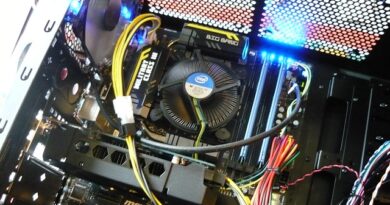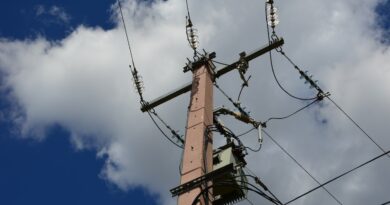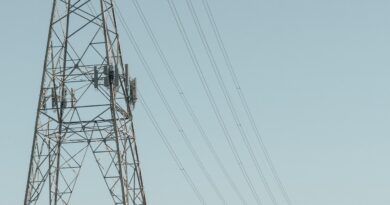PowerWatch Chronicles: Shocking Discoveries from Electrical Safety Audits in Noida
Introduction
In recent years, Noida has witnessed a surge in industrial and residential developments, leading to a significant increase in electrical infrastructure. With this growth comes the crucial need for ensuring electrical safety. Electrical accidents can result in serious injuries, property damage, and even loss of life. To address these concerns, electrical safety audits have been conducted in Noida, revealing shocking discoveries that underline the importance of proactive measures to prevent electrical hazards.
Importance of Electrical Safety Audits
Electrical safety audits play a pivotal role in identifying potential risks, hazards, and compliance issues related to electrical systems. These audits are carried out by qualified professionals who assess the electrical infrastructure, equipment, and practices followed by organizations and individuals. The aim is to identify shortcomings and provide recommendations for improving safety measures.
Common Electrical Hazards Found
During the electrical safety audits in Noida, several common hazards were identified. These hazards pose a significant threat to the safety of residents, workers, and property. It is crucial to address these issues promptly to mitigate the risks associated with electrical accidents.
1. Insufficient Grounding Systems
One of the most prevalent hazards found during the audits was the lack of proper grounding systems. Inadequate grounding can lead to electric shock, short circuits, and equipment malfunction. This issue was found in both residential and industrial settings.
2. Overloaded Circuits and Electrical Panels
Overloading electrical circuits and panels was another major concern. This occurs when the demand for electricity exceeds the capacity of the wiring or equipment. Overloaded circuits can lead to overheating, fires, and electrical failures.
3. Damaged or Outdated Wiring
Damaged or outdated wiring was frequently discovered during the audits. Worn-out insulation, exposed wires, and loose connections increase the risk of electrical faults, short circuits, and electrical fires. Upgrading the wiring system is essential to ensure safety.
4. Faulty Electrical Appliances and Equipment
The audits revealed a significant number of faulty electrical appliances and equipment. These defective devices pose a severe risk of electric shock, fires, and other electrical accidents. Regular maintenance, inspections, and prompt replacement of faulty equipment are crucial to prevent such hazards.
5. Improper Use of Extension Cords
Improper use of extension cords was identified as a common safety issue. Extension cords are often used as a permanent solution, leading to overloaded circuits and increased fire hazards. Proper installation of electrical outlets and minimizing reliance on extension cords can mitigate this risk.
6. Inadequate Fire Protection Measures
Fire protection measures were found to be inadequate in many audited premises. Lack of smoke detectors, fire extinguishers, and fire-resistant materials can escalate the impact of electrical fires. Proper fire safety equipment and protocols are vital to protect lives and property.
7. Lack of Regular Maintenance
A lack of regular maintenance emerged as a recurring theme during the audits. Neglecting maintenance activities, such as inspecting electrical systems, cleaning components, and tightening connections, increases the likelihood of electrical failures and hazards. Regular maintenance should be prioritized to ensure ongoing safety.
Importance of Professional Electrical Safety Audits
The discoveries made during the electrical safety audits in Noida underscore the importance of professional assessments. Qualified electrical safety auditors possess the knowledge and expertise to identify hidden hazards and offer effective solutions. Engaging professionals for regular audits can prevent accidents, save lives, and safeguard property.
Steps to Ensure Electrical Safety
To ensure electrical safety in Noida, it is crucial to take proactive measures. Here are some steps that individuals, organizations, and authorities should follow:
- Regular electrical safety audits: Conduct periodic audits by qualified professionals to identify and address potential hazards.
- Adequate grounding: Ensure proper grounding systems to prevent electrical shocks and malfunctions.
- Avoid overloading circuits: Do not overload circuits and electrical panels to prevent overheating and electrical failures.
- Upgrade wiring systems: Replace damaged or outdated wiring to minimize the risk of short circuits and electrical fires.
- Promptly replace faulty equipment: Regularly inspect and replace faulty electrical appliances and equipment to prevent accidents.
- Proper use of extension cords: Use extension cords sparingly and temporarily, avoiding permanent installations.
- Install fire protection measures: Equip premises with smoke detectors, fire extinguishers, and fire-resistant materials.
- Regular maintenance: Conduct routine maintenance activities, such as inspections, cleaning, and tightening connections, to ensure ongoing safety.
Conclusion
The electrical safety audits conducted in Noida have shed light on the alarming state of electrical infrastructure and practices. Addressing the identified hazards is of utmost importance to prevent accidents, injuries, and property damage. By prioritizing electrical safety measures and adhering to professional audits, Noida can foster a secure environment for its residents, workers, and businesses.
FAQs
1. What is an electrical safety audit? An electrical safety audit is a comprehensive assessment of electrical infrastructure, equipment, and practices to identify potential risks and provide recommendations for improvement.
2. Why are grounding systems important? Grounding systems are crucial as they prevent electrical shocks, reduce the risk of equipment malfunction, and divert electrical faults safely.
3. How can I prevent overloading electrical circuits? Avoid overloading circuits by distributing electrical loads evenly, using separate circuits for high-power devices, and avoiding the excessive use of extension cords.
4. Is regular maintenance necessary for electrical safety? Yes, regular maintenance is essential to ensure electrical safety. It helps identify and address potential hazards, prevent equipment failures, and minimize the risk of electrical accidents.
5. Can I conduct electrical safety audits on my own? It is recommended to engage qualified professionals for electrical safety audits as they possess the expertise to identify hidden hazards and provide effective solutions.




